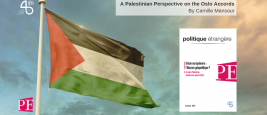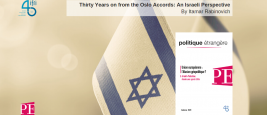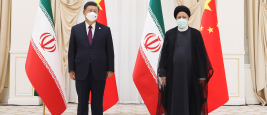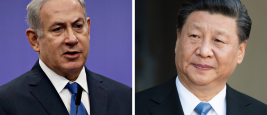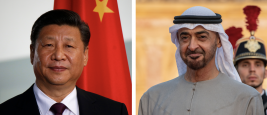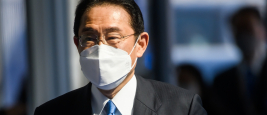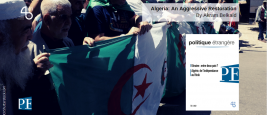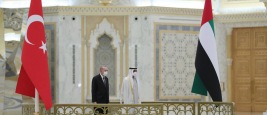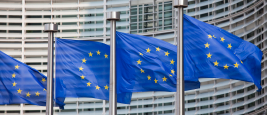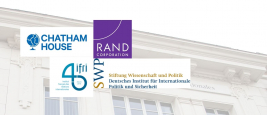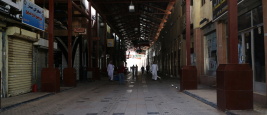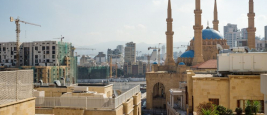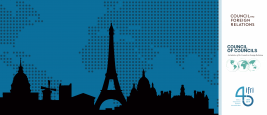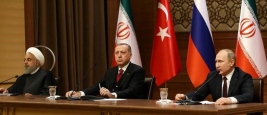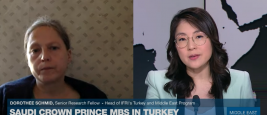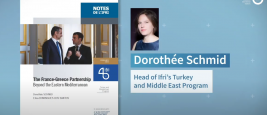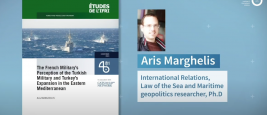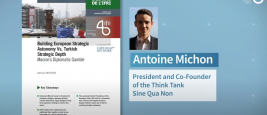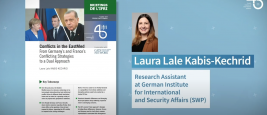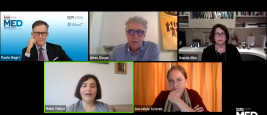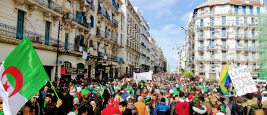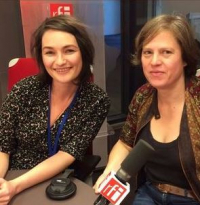The Oslo Agreement of 1993 was a declaration of principles that later needed to be clarified through further negotiations.

Middle East / North Africa
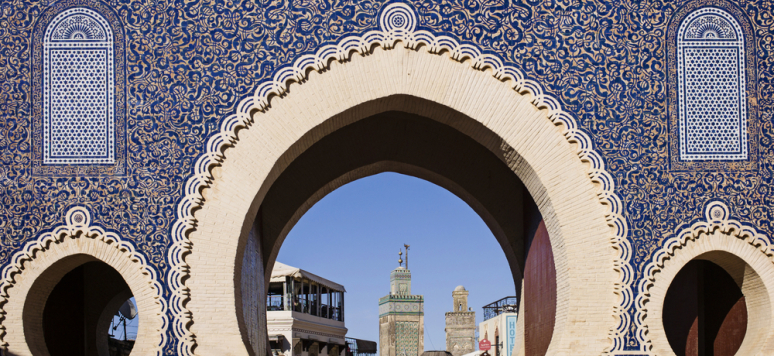
The Middle East and North Africa Programme at IFRI aims to provide expertise on the trends and developments in politics, societies and economies across the region.
The programme has the following objectives:
- Proposing a new approach towards the MENA region through an analysis of local, regional, and international dynamics with the potential to guide and influence new policies ;
- Highlighting the role of foreign powers which have traditionally been present in the region and analyzing the new role taken on by emerging countries ;
- Anticipating new directions and outlooks in each country;
- Interpreting risks and potentials and puting forward new templates for analysis.
The programme has built a dense network of researchers and experts who provide expertise on the MENA region and working together on a range of crosscutting themes.
Senior Research Fellow, Head of Ifri’s Türkiye and...
Research Fellow, Türkiye and Middle East Program
...Associate Research Fellow, Türkiye and Middle East...
Senior Advisor for North Africa and the Middle East
Research Interests:
- North Africa
- The Middle East
Associate Research Fellow, Türkiye and Middle East Program
...Associate research fellow, Turkey and Middle East Program
...
The Oslo agreements signed in 1993 raised high hopes for peace in the Middle East. But appraising the state of affairs, thirty years on, the picture is bleak.
On March 10, the revelation of an agreement between Saudi Arabia and Iran brokered by China took Western observers and diplomats by surprise. Beijing's unprecedented intervention in the dispute between Riyadh and Teheran confirms its growing ambitions in the region.
Like the Gulf monarchies, Israel has strengthened its economic cooperation with China since Xi Jinping came to power in 2013, leading to an influx of Chinese capital, whether in Tel Aviv's high-tech sector or in Israel's port infrastructure.
In just under five years, the United Arab Emirates (UAE) has accelerated its rapprochement with Xi Jinping’s China, to the point of becoming the first Gulf country to find itself at the heart of the rivalry between Beijing and Washington. Although benefiting from a large US military presence,...
Addressing remotely the 8th Japan-Africa TICAD Summit held in Tunis between August 27th and 28th, Japanese Prime Minister Fumio Kishida pledged $30 billion in public and private contributions to the African continent over the course of the next three years. This is a quite a remarkable...
The election of President Abdelmadjid Tebboune, followed by the Covid-19 pandemic, marked the end of the road for the Hirak movement that had failed to establish itself as a political alternative despite its massive popularity.
After the Arab uprisings, Turkey’s relations with Saudi Arabia and the United Arab Emirates (UAE) broke down along sharp ideological lines. While Riyadh and Abu Dhabi sought to preserve the regional status quo by adopting a counter-revolutionary approach, Turkey emerged as an anti status quo,...
Relations between southern European member states have often been marked by a loose cooperation or, worse, by logics of competition. Precisely when regional groupings within the European Union are increasingly shaping the agenda, these dynamics have hindered the capacity of France, Greece...
QUAD 2021 Annual Meeting
Since 1983, the QUAD gathers every year, the SWP, RAND Corporation, Chatham House and Ifri. The QUAD was set up during the Euromissile crisis and brings together European and American diplomats, military officers, journalists and research fellow to debate on current geopolitical issues.<...>
Eastern Mediterranean: Preventing Escalation Les Jeudis de l'Ifri
Covid-19 in the Middle East: immunity in chaos? Videoconference for Ifri's members
North Africa and the Middle East a priori appeared as fragile spaces in the face of the Covid-19 pandemic: significant migratory flows, strong social inequalities as well as in the access to health structures, weak governance, violent protests and open wars could all amplify the...
What is Turkey seeking in the Middle-East? Videoconférence
A videoconference around Dorothée Schmid, head of Ifri’s Turkey / Middle-East Pogram.
Can economics bring peace to the Middle East?
Economics are an underestimated factor in the analysis of armed conflicts in the Middle East. It is however an increasingly determining variable in the social and political balance of powers within the states, as illustrated by the 2011 ‘Arab springs’, but also on a regional level.<...>
Division or Reconciliation: The Changing Political Agenda and Role of Think Tanks in the Next Decade? Council of Councils Twelfth Regional Conference
The 12th regional conference of Council of Councils (CoC) will take place at Ifri from November 17 to 19, 2019. An initiative of the Council on Foreign Relations, the CoC strives to define major foreign policy challenges by...
Global cybersecurity challenges: Disentangling risks and opportunities in international politics Ifri-PCNS Roundtables
International politics are increasingly intertwined with cyber-related issues. Cyberattacks are more and more frequent and sophisticated; their perpetrators, like their victims, may be governments or private actors.
G7 / Think Tank7 Summit G7 Engagement Group
The Think Thank 7 (T7) is an engagement group that brings together the leading Think Tanks from the G7 countries in order to analyze and make recommendations on key issues of the G7 presidency.
Global Governance of Migration: A Challenge Beyond the North-South Paradigm GFMD Side Event
The global dialogue on migration is frequently stalled due to contradictory interests and positions between the countries of the North (Europe and North America) and the South.
Turkey advancing in the Middle East Seminar and Round-table Conference
The Syrian imbroglio has arguably proved to be the most consequential foreign policy topics for Turkey in decades, structurally impacting Ankara's vision and priorities as well as its regional engagement.
The leaders of Saudi Arabia and Turkey are turning the page on years of strained relations, exacerbated by the 2018 assassination of Saudi journalist Jamal Khashoggi at the kingdom's consulate in Istanbul. Face-to-face dialogue is the order of the day between Crown Prince Mohammed bin Salman...
This week, Ifri, in partnership with CATS Network, is launching a series of five videos on the tensions in the Eastern Mediterranean, seen through the prism of the geopolitical rivalry between France and Turkey.
This week, Ifri, in partnership with CATS Network, is launching a series of five videos on the tensions in the Eastern Mediterranean, seen through the prism of the geopolitical rivalry between France and Turkey.
This week, Ifri, in partnership with CATS Network, is launching a series of five videos on the tensions in the Eastern Mediterranean, seen through the prism of the geopolitical rivalry between France and Turkey.
Dorothée Schmid, head of the Middle East program participated in a webinar organized by Italian think tank ISPI and the Malcolm H. Kerr Carnegie Middle East Center to...
Protests have stopped President Abdelaziz Bouteflika from seeking another term, but it won’t change the military’s domination of the political system.
Turkey is looking to revive a fragile ceasefire in Aleppo, and the planned evacuation of civilians, which brokered with Russia. But why is Ankara, a staunch opponent of Damascus, interested in helping to create an outcome that would benefit President Assad? Amanda Morrow put the question to...
Después de haber rehuido durante años implicarse en una región que considera un avispero, China quiere finalmente mostrarse como un participante más activo en Oriente Medio. La visita que el presidente chino, Xi Jinping, comienza este martes a Arabia Saudí, Irán y Egipto señala la creciente...









